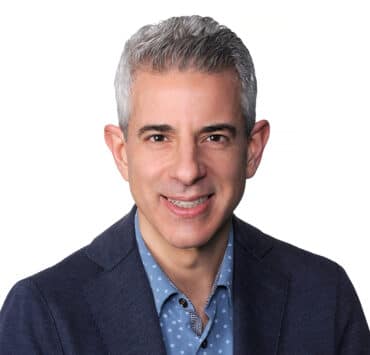|
Getting your Trinity Audio player ready... |
With over twenty-five years of experience building and leading at high-performing, global tech organizations, Jeff McKibben is the kind of person that is willing to stick around—as long as he can keep building. The chief information officer at Ultra Clean Technology (UCT) developed his breadth of experience through long stints at Hewlett Packard and onsemi, assuming increasingly more senior roles in both organizations by leading his teams through critical moments.
“A company always has these arcs of growth,” McKibben explains. “Those are the exciting times when you can help an organization grow and evolve to its next level. Those are always the moments I look for, and that’s what led me to UCT.”
In his previous role, McKibben helped grow onsemi from $1.6 billion to $6 billion in revenue. He was drawn to UCT because it is in the early stages of a prolonged ramp in the semiconductor industry and UCT is set to continue growing. In just two short years, UCT has doubled its revenue from $1 billion to $2 billion, and that expansive growth is leading the CIO to help create a business-wide standardization and efficiency of data management strategy to ensure business continuity within this rapidly accelerating digital environment.
“A company always has these arcs of growth. Those are the exciting times when you can help an organization grow and evolve to its next level.”
Jeff McKibben
Even decades into his career, McKibben’s passion for the build hasn’t diminished in the least.
From the technology side, McKibben says he was able to lay out his transformative plans early on in his interview process at UCT. “One of the first things I told the management team was that we would need to hire a chief information security officer,” the CIO explains. “We had good infosec in place, but as the company continues this massive growth, it’s just going to become a bigger target for the bad guys.”
McKibben says UCT is shifting to a higher-value strategy, one more dependent on its own proprietary information, practices, and know-how. That intellectual property becomes more critical to keep safe and protected.
Additionally, UCT had been implementing an ERP when McKibben arrived to address systems that needed more flexibility and scalability.
“As the company started rolling out SAP, the idea of having a common enterprise system was getting diluted by customizations at each site,” McKibben explains. “This presented a challenge.”
Any ERP implementation is long and ambitious, and McKibben says alignment with business functions, particularly finance and operations, has been critical to overhauling the process. Record-breaking demand has the company operating at peak performance, and the CIO is confident the reimagined implementation will allow the company to raise its own operating capabilities.
“You shouldn’t tie your identity to any one particular technology, because the landscape is always changing.”
Jeff McKibben
There are the operational and procedural evolutions, and then there are the cultural ones. McKibben quotes Peter Drucker’s phrase “Culture eats strategy for breakfast,” and the ways that axiom is being applied at UCT is precisely what helps differentiate it among its competition.
“We talk about ‘One UCT’ here in everything that we do,” the CIO says. “It’s essential, because if you’re not addressing the culture question, you’re never going to get the consistency of process that we want.”
McKibben says the commitment to culture building provided a strong allure in coming to UCT. Every all-hands meeting, led by CEO Jim Scholhamer, focuses on the company’s six core values. McKibben leads with those values when explaining things that may need to change. If adjustments are aligned with core values, they’ll be better understood, accepted, and adopted across the wider organization.
The success of the CIO’s leadership can be traced to several of the personal tenets that he has developed for himself over the years. He believes these standards can aid future tech leaders on their own paths.
“You shouldn’t tie your identity to any one particular technology, because the landscape is always changing,” McKibben says. “Your value should be about your understanding of how to use that technology, regardless of your position, to drive successful outcomes for the business.”
Additionally, one should pursue an organization that they can truly align with. It speaks to McKibben’s long tenures in his previous roles. By finding the right organization, one can make opportunities for the advancement of their own career and skill set within that organization. Or, as McKibben puts it, “make your organization successful, and the opportunities will follow.”
And no matter how driven one might be, the role a mentor can play in one’s development is incalculable. Jeff McKibben mentions former colleagues and mentors like Kevin Haskew, Paul Petersen, and Garry Gray whose leadership helped grow McKibben as a manager and executive in his own right.
“Western culture tends to focus on individual credit and achievement, but what about all of those people in Edison’s lab?” McKibben asks. “Every one of us is standing on the shoulders of giants, and those people always need to be appreciated.”
PwC’s purpose is to build trust in society and solve important problems. We help clients with capabilities ranging from cloud and digital, deals, ESG, cybersecurity and privacy, governance/boards, risk, transformation, tax services and much more, across our global network of more than 295,000 people in 156 countries. Learn more at pwc.com/sap
Bristlecone is a leading provider of supply chain and specialized digital transformation services for the intelligent enterprise. We empower our customers with speed, visibility, automation and resiliency – to thrive on change. We are ranked among the top ten leaders in supply chain services by Gartner. We have 14 global hubs and over 2,100 consultants.

